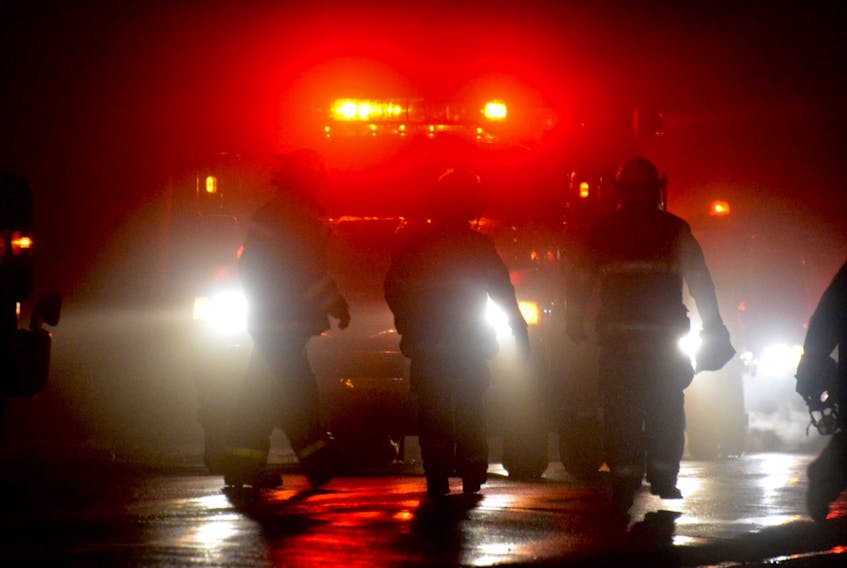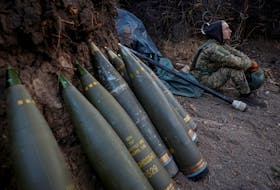Sometimes, what keeps firefighters — especially senior officers — up at night isn’t what they’ve seen — but instead, the myriad of situations they might have to deal with.
A big part of firefighting is preplanning — making sure you roll the right number of resources for a fire call, making sure that you’ve been through larger businesses to understand their floor plans and any chemical or fire load hazards, and even, in rural areas, considering how to deal with wildfires before provincial crews arrive.
You have to be ready to evacuate areas — you even have to plan for how to call up heavy equipment available on short notice.

I was a deputy fire chief in a volunteer department for a number of years — I’m glad I’m not one just right now. Because I wonder how fire officers — especially in rural departments that essentially have a single shift working 24-7, 52 weeks of the year — are planning to handle what happens when and if they are exposed to a patient with COVID-19.
Think about it, first from the point of view of resources, then from the point of view of spread.
A volunteer department has a limited number of trained firefighters — and, because they’re volunteers, they have different levels of interest and involvement, and even different levels of ability to respond in the department.
Invariably, you have a crew of very involved firefighters who show up to almost every call — they’re obviously the ones most likely to be on a call that involves COVID-19 exposure. So, you lose your front line to self-isolation and you can’t simply draw up trained replacements at the drop of a hat, especially not ones that know your geography, equipment and procedures. You also clearly can’t have firefighters exposed to COVID-19 responding to calls anymore.
Then, there’s spread.
The departments I’ve been part of have had a range of different kinds of people. Firefighters I’ve worked with have included a senior university executive; the owner, operator and chief mechanic at a garage; a sign painter; a daycare owner and operator; a long-haul truck driver; oilfield workers; a short-order cook — and the list goes on.
You go on a call, unknowingly get exposed, and when you park the equipment and hang up your gear, head right back to your regular job — and a whole bunch of other people who might be exposed, including the families of firefighters.
I’m just glad that I’m not the one who might have to tell either a firefighter or a patient, “Sorry, we got this wrong.”
In Newfoundland and Labrador, during one exposure to COVID-19 at a health-care centre, paramedic crews have already had to self-isolate. Almost 100 health-care workers had to stop work, looking at 14 days of self-isolation because of one patient.
So what do you do? How do you pre-plan for that mess? Do you risk the ability of having the resources to respond to future calls?
At least one Newfoundland fire department has said it won’t respond to medical calls until the pandemic sorts itself out. On Prince Edward Island, fire departments are taking additional precautions, but still responding.
In Nova Scotia, Emergency Health Services told fire departments to only respond to medical situations that involved the need for extrications from motor vehicles using specialized equipment.
But that creates another problem.
Firefighters don’t respond to medical calls because they like getting the trucks out of the station. They respond to medical calls because they’re trained for medical emergencies and often get there first — sometimes, by a significant margin, if paramedic resources are tied up or far away. They are also sometimes needed to help paramedics with things as simple as moving large patients. And sometimes, volunteer departments are the only immediate medical response available.
I’m just glad that I’m not the one who might have to tell either a firefighter or a patient, “Sorry, we got this wrong.”
Russell Wangersky’s column appears in SaltWire newspapers and websites across Atlantic Canada. He can be reached at [email protected] — Twitter: @wangersky.









